On June 11, 2024, the 12th lecture of the Song Zexing Lecture Hall for Overseas Masters was held at the Jonathan KS Choi Hall of Puhe Campus, where Professor Wing Thye Woo from the University of California, Davis was invited to give an academic report titled ‘Reforming Economic Globalization for Peace, Prosperity and the Planet’. Professor Yu Miaojie, Deputy Secretary of the CPC Committee and President of Liaoning University attended the report meeting and introduced the speaker. The meeting was also attended by Professor Yao Shujie, Dean of Li Anmin Institute of Economic Research, Professor Huo Weidong, Deputy Director of the Faculty of Economics, Associate Professor Kong Xiao, Director of Office of the Faculty, Professor Ma Xiangjun, Vice President of School of Finance and Trade and Vice President of China Economic Research Institute, Associate Professor Chen Fu, Deputy Director of Institute of Environmental Economics, Professors He Jun and Professor Zhang Daning, Vice Presidents of School of Economics and Professor Ding Liyi, former Vice President of Liaoning Economic Management Cadre College. The lecture was presided over by Professor Li Shuyun, Deputy Director of the Academic Committee of Liaoning University.
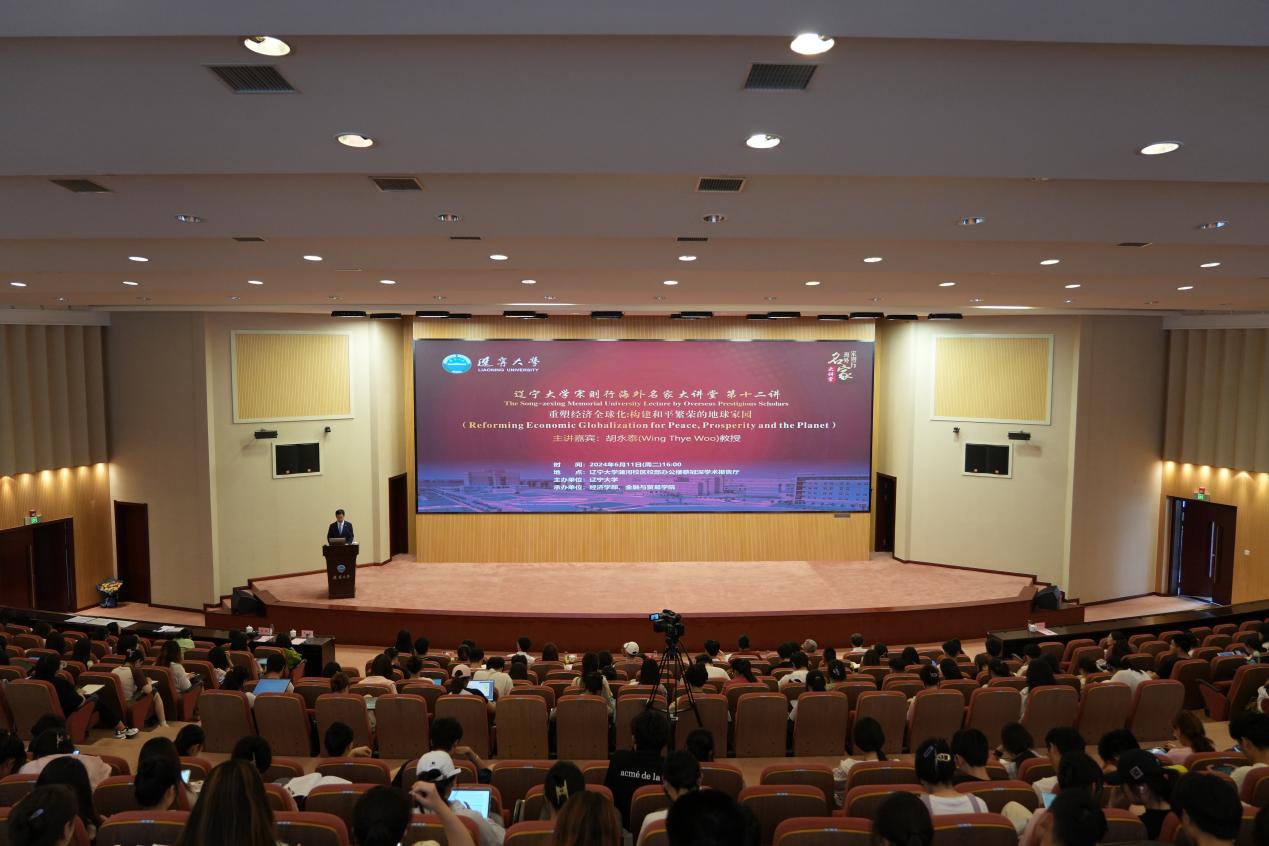
President Yu Miaojie extended a sincere welcome to Professor Wing’s lecture at Liaoning University and introduced his academic background and achievements, particularly his high status in the field of international trade and his great contribution in the academic field. He noted that Professor Wing is a pioneer economist who studies the transition of planned economies and constitutional reform. He has long studied macroeconomics and international financial theories and put forth many unique insights on global and East Asian economic growth. With a rigorous attitude to science, he has been devoted to boosting global prosperity. By integrating theoretical innovation and practices, he has provided valuable decision-making suggestions for many national governmental departments and international institutions in macro-economy, foreign exchange management, restructuring of state-owned enterprises, trade issues and development of financial sectors. Facing his teacher, President Yu spoke highly of Professor Wing’s academic achievements and expressed his special tribute and heartfelt thanks for his guidance and support.
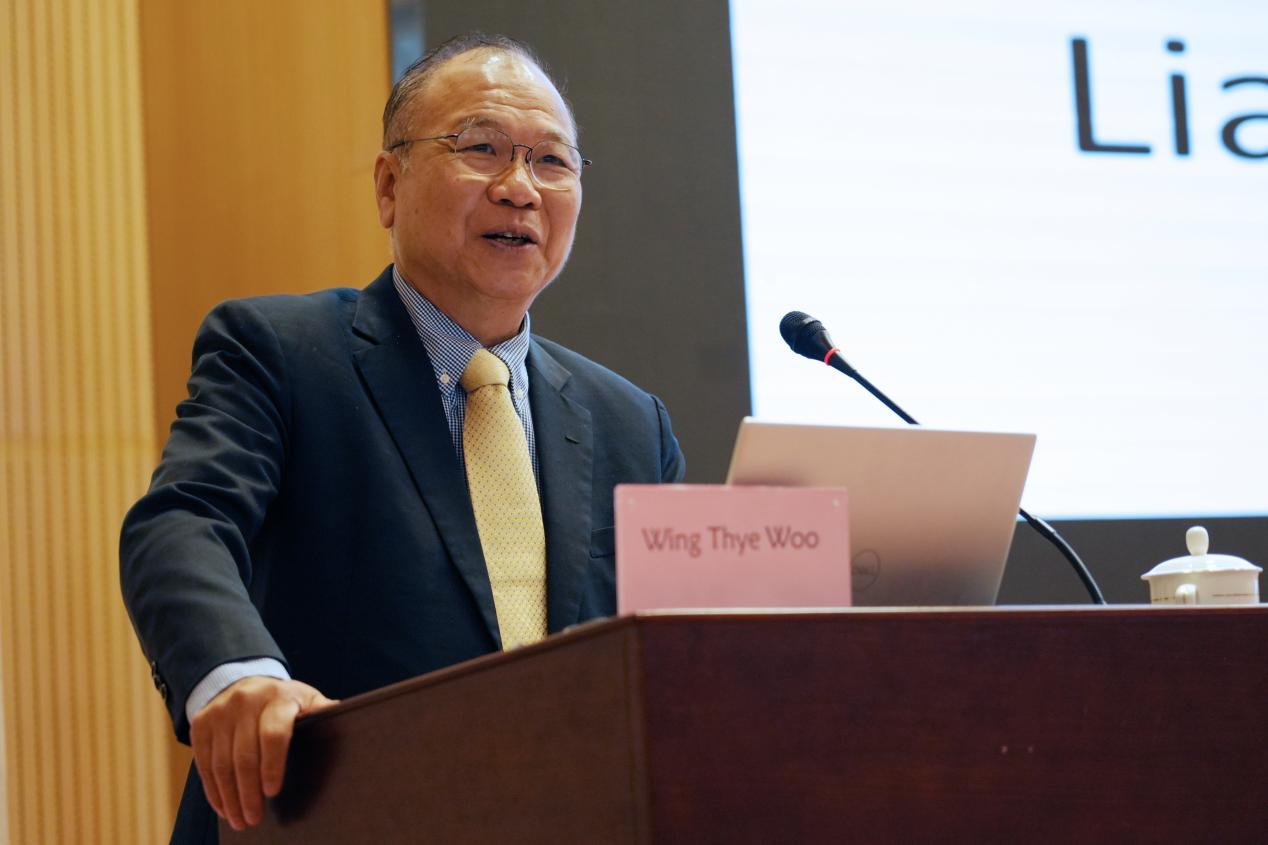
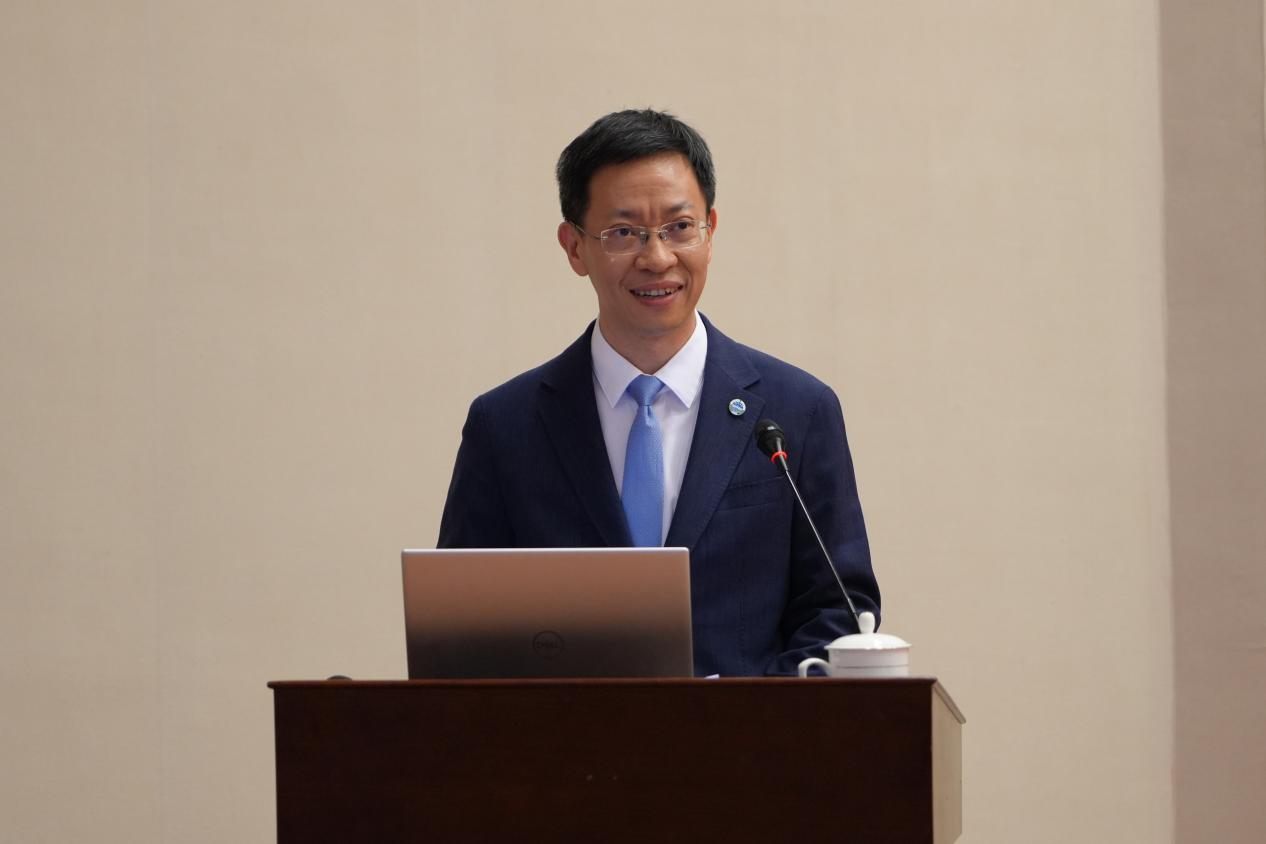
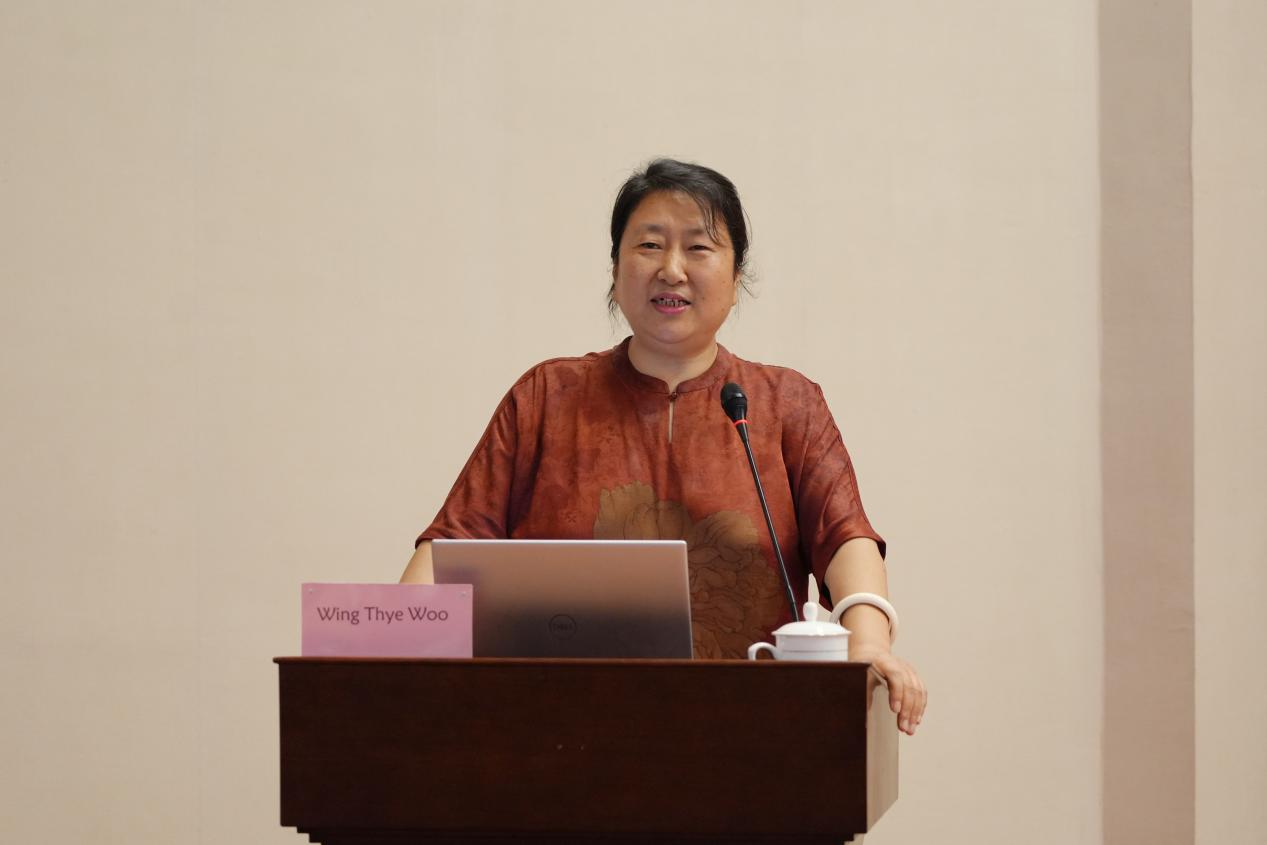
During the lecture, Professor Wing made an in-depth analysis of the severe challenges to the global order in terms of economic and security issues against the backdrop of China-US relations and put forward corresponding solutions. He noted that the trade war between China and the US as well as the technical blockade imposed by the US on China had accelerated the process of regional economic integration and brought an inestimable negative impact on the global economy. By constructing an economic model, he analyzed the GDP losses caused by the US’s strategies against China to major countries in the world. In view of the current predicament, he advocated separating geostrategic competition from scientific and technological competition and trade competition through negotiations and establishing a ‘guardrail’ between the two sides to prevent complete decoupling. To this end, he proposed a series of measures, including formulating arms control agreements, establishing neutral buffer zones, banning of state-sponsored commercial espionage activities and formulating new WTO agreements to ensure security and fair competition. His speech reflected his profound insights into international politics and economy, providing valuable reference for understanding the global landscape. His constructive solutions rendered the valuable enlightenment that win-win cooperation is vital to resolve conflicts and build a better future.
At the end, President Yu presented Professor Wing with a lifelong honorary professor appointment letter of Liaoning University. Professor Yao Shujie presented Professor Wing with a commemorative plate of the Song Zexing Lecture Hall for Overseas Masters. Professor Huo Weidong presented Professor Wing with a commemorative photo and Professor Ma Xiangjun presented Professor Wing with a Think Tank Report of Liaoning University. Professor Kong Xiao presented a school badge to Professor Wing, while Associate Professor Chen Fu presented him with a school cap and Assistant Dean Yin Lijuan from the School of Finance and Trade presented flowers. Teachers and students took group photos with Professor Wing.
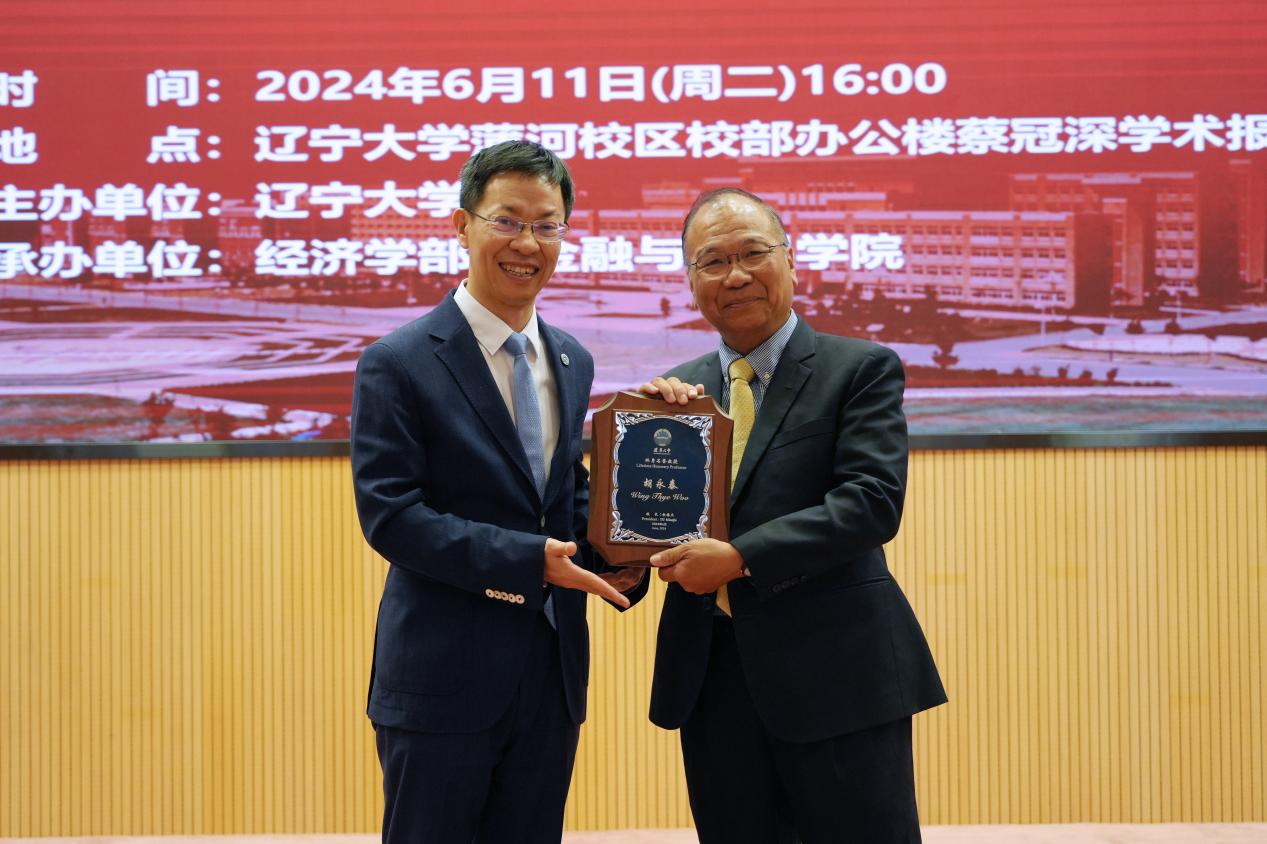
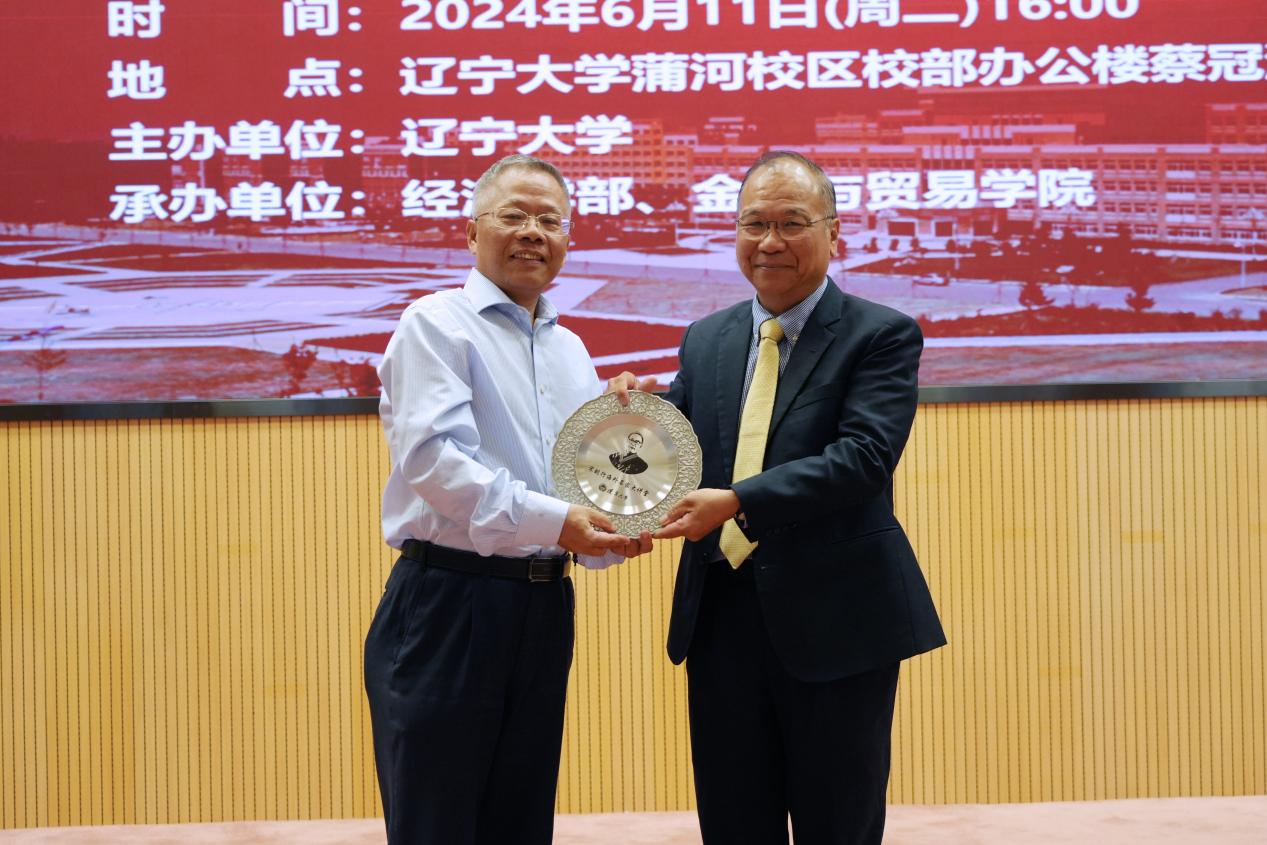
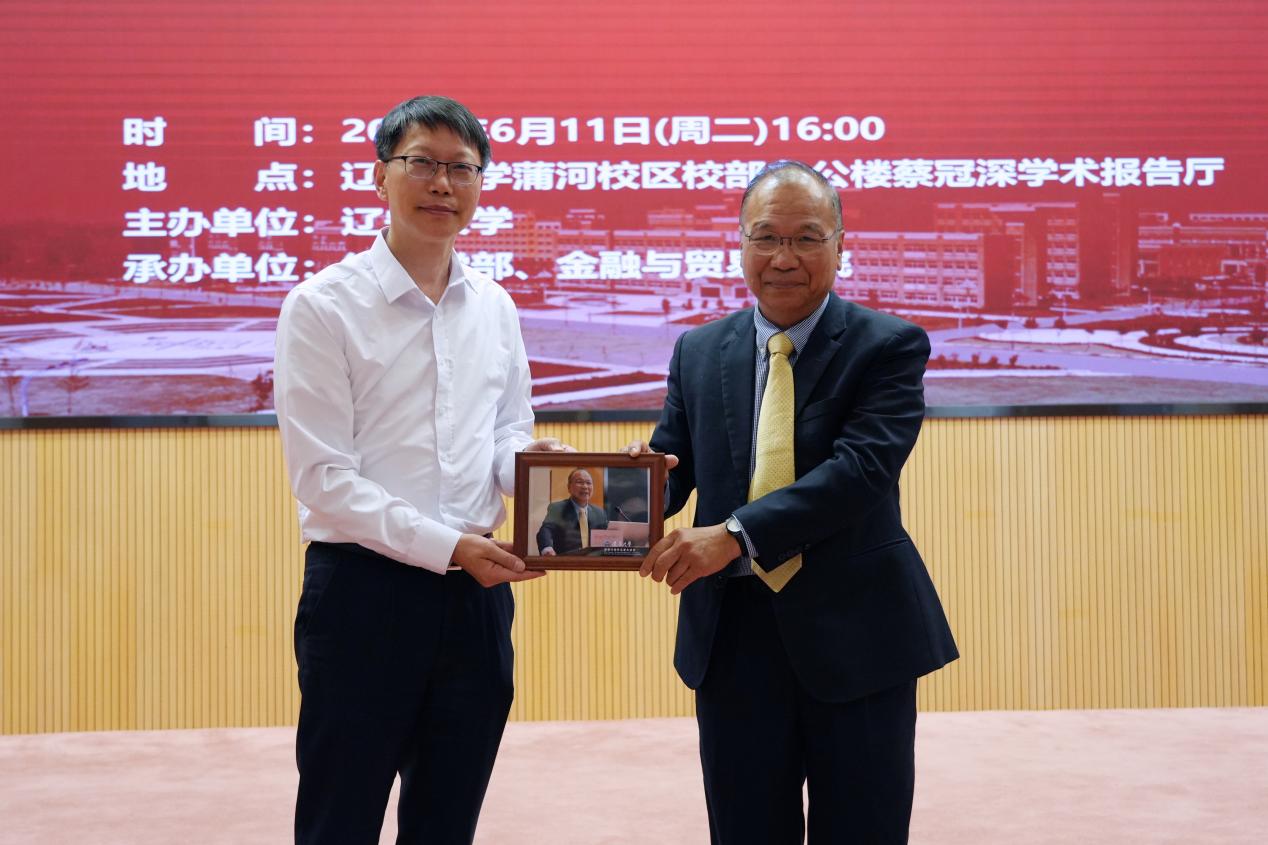
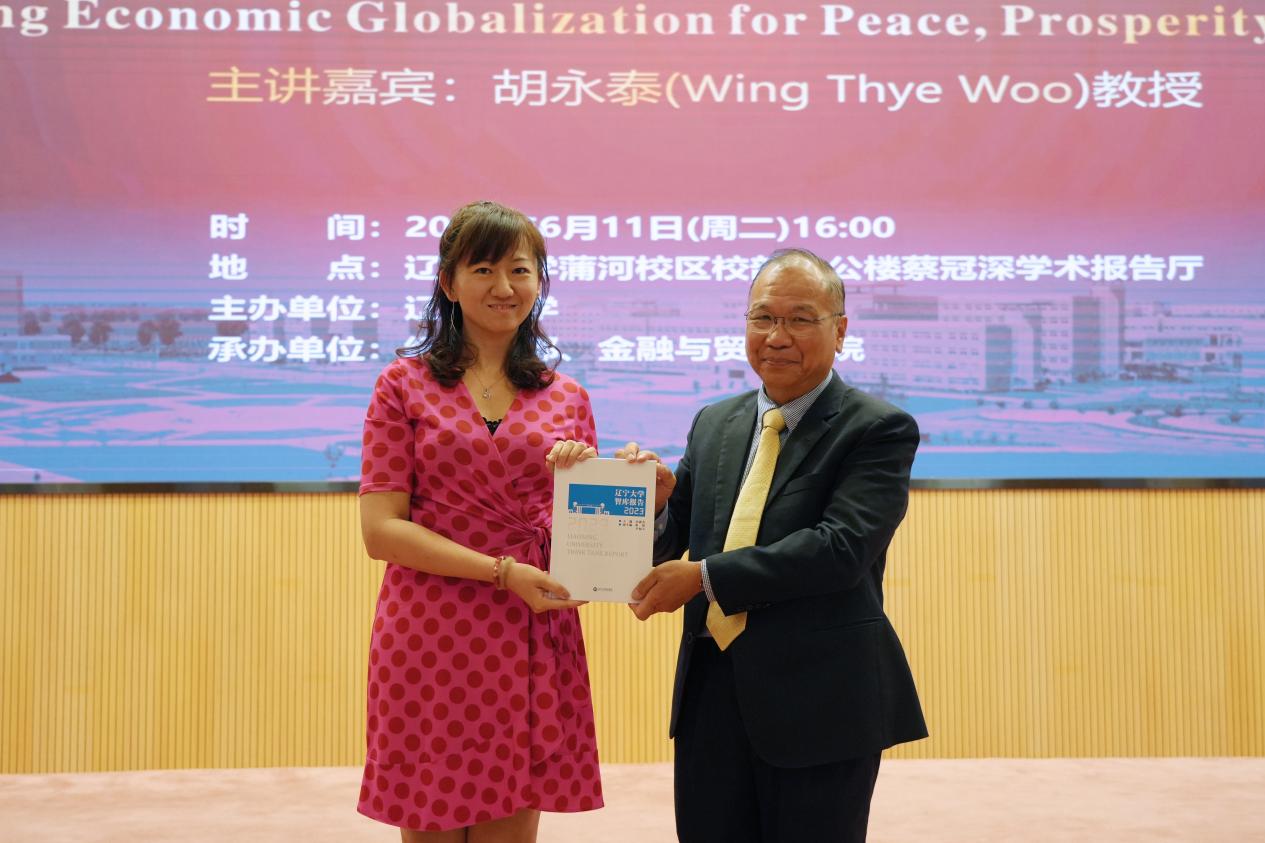
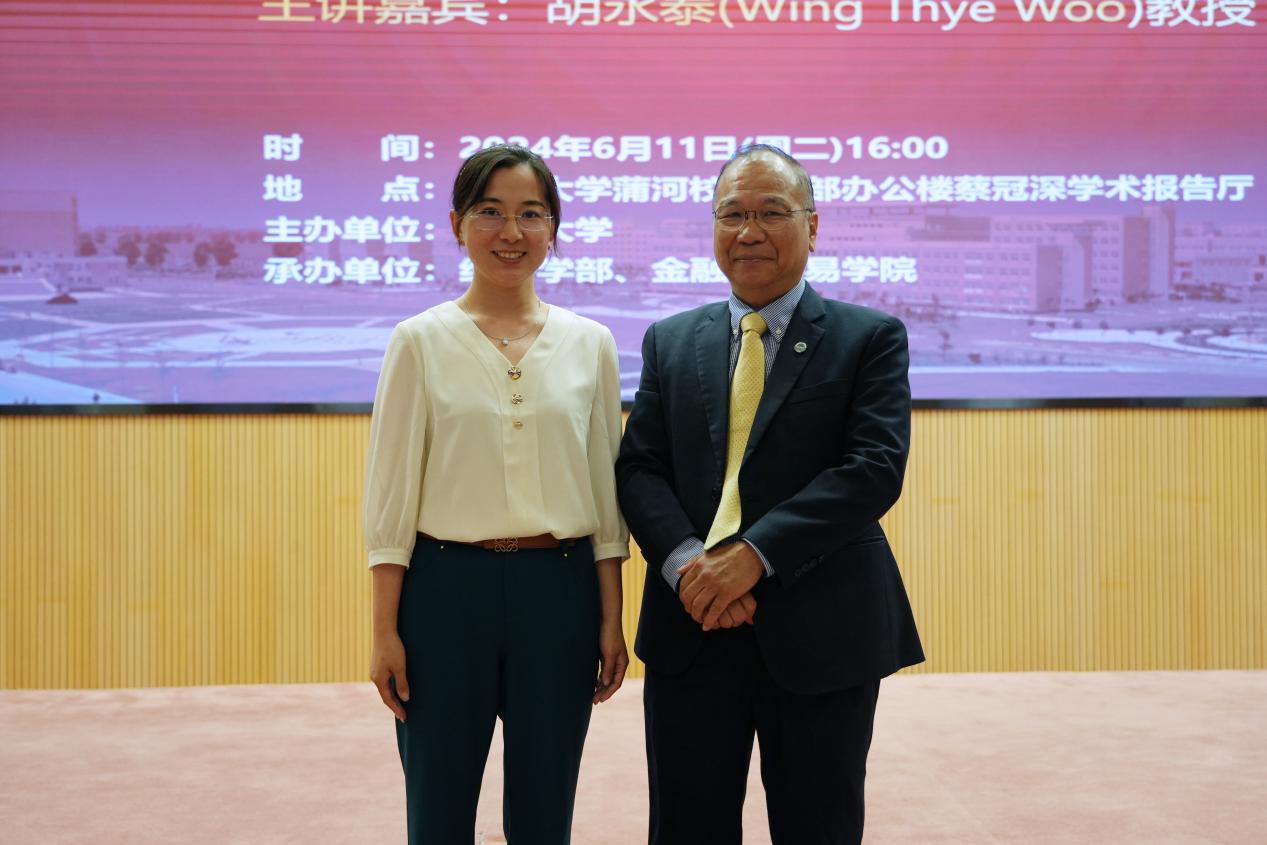
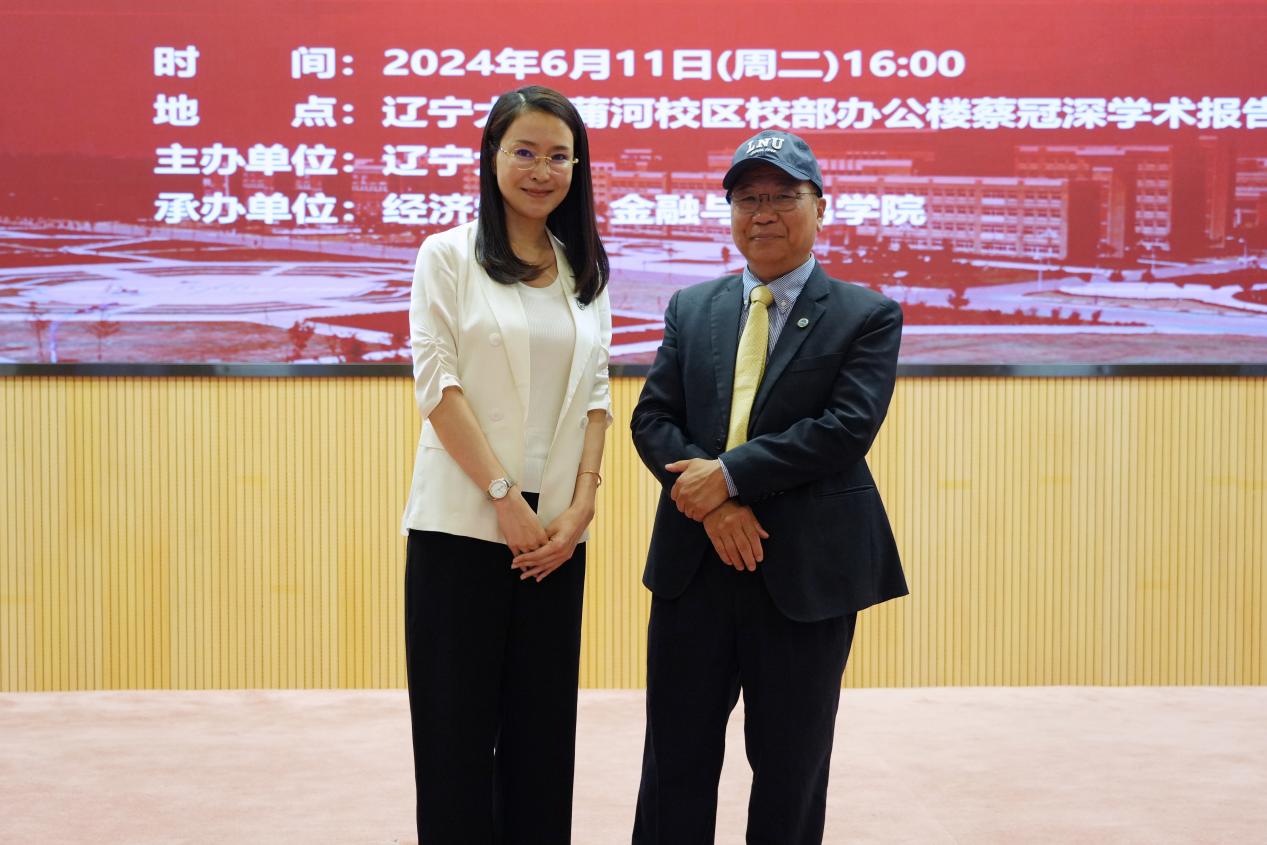
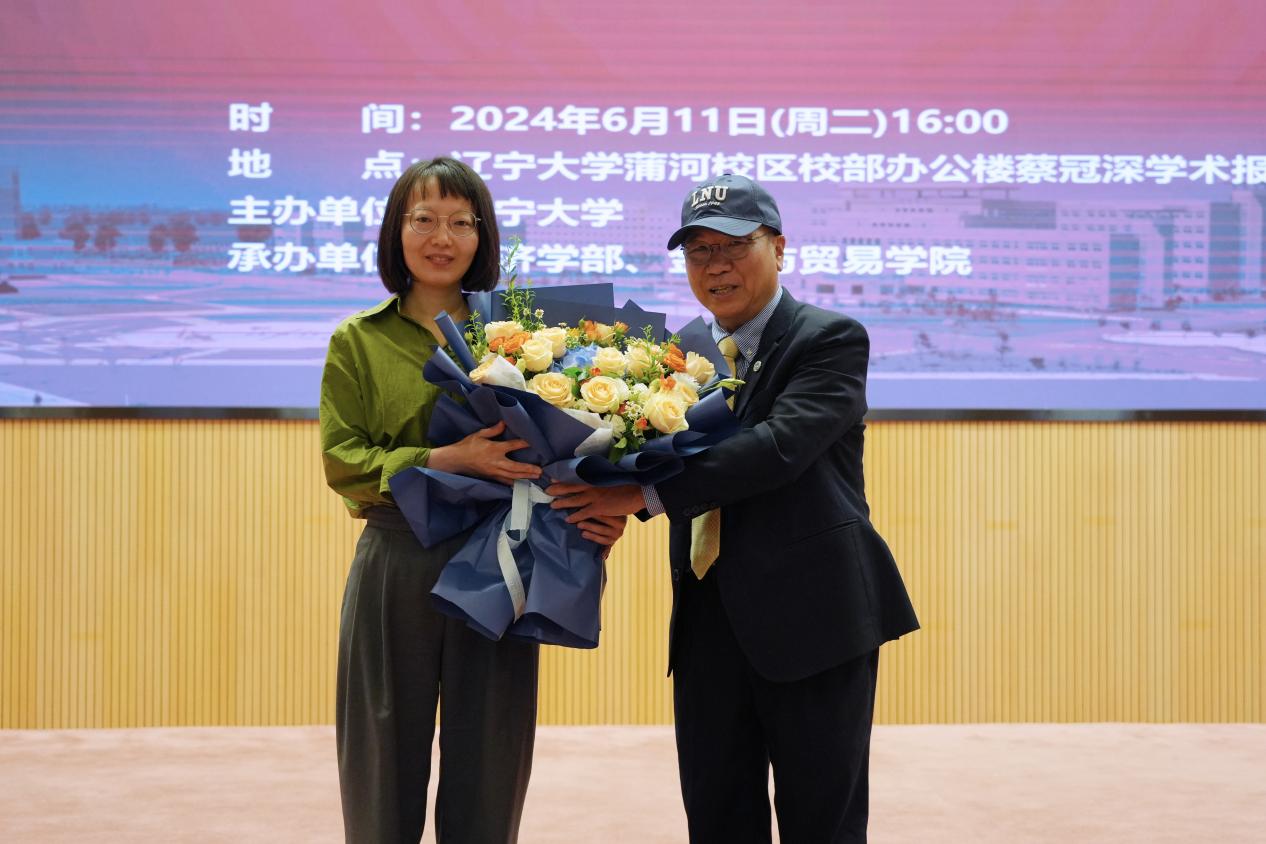
The lecture was hosted by the Faculty of Economics of Liaoning University and was undertaken by the School of Finance and Trade and China Economic Research Institute. More than 300 teachers and students from the affiliated schools of the Faculty attended the meeting.
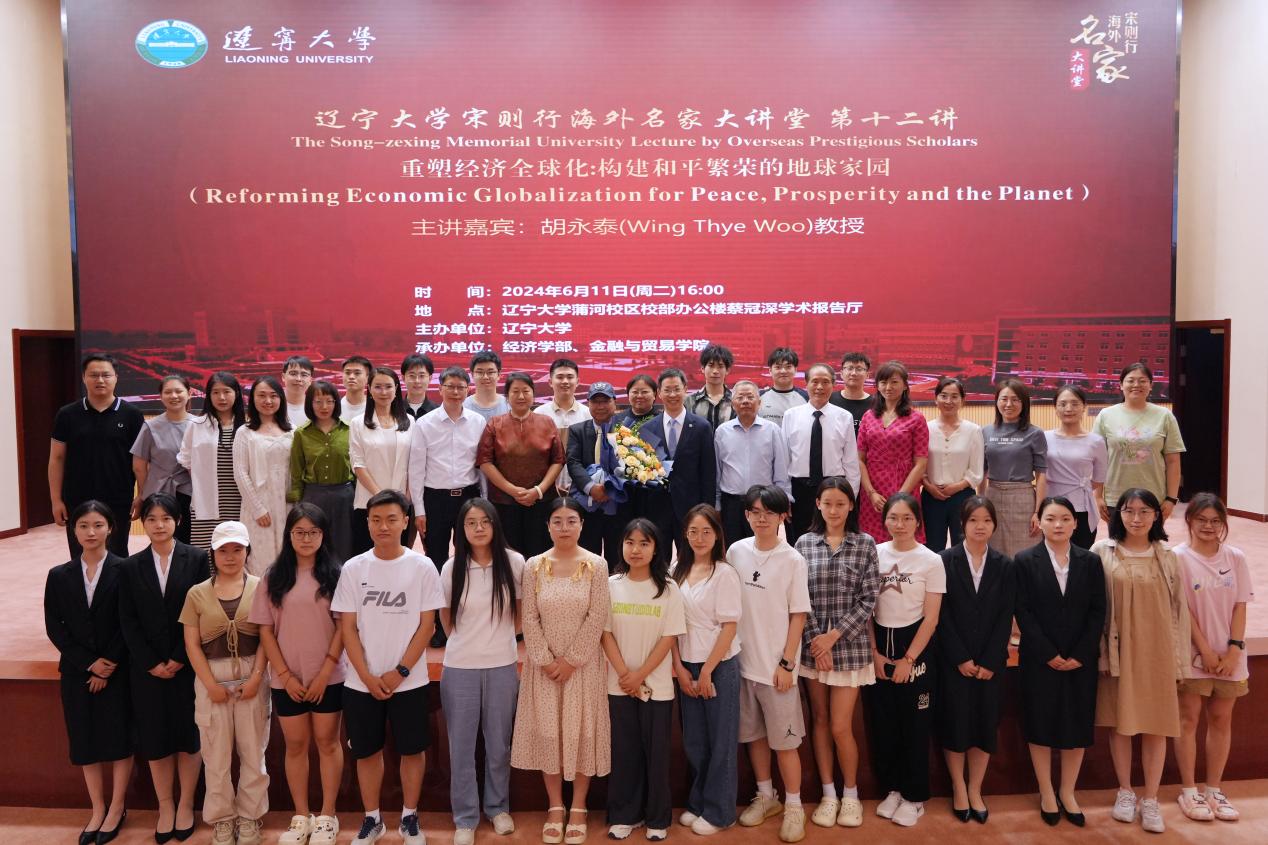
Wing Thye Woo: biography
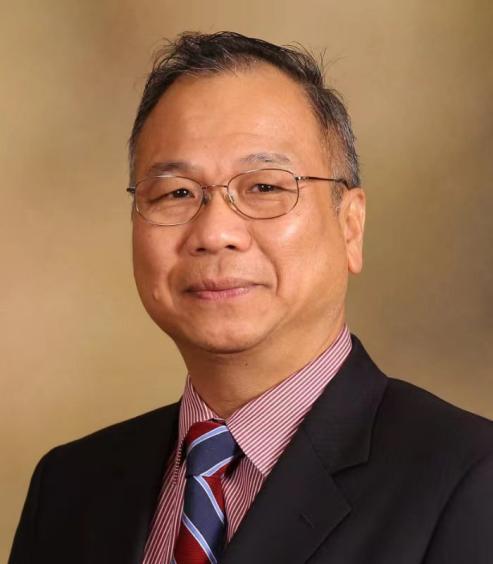
Wing Thye Woo has a Ph.D. from Harvard University and is a professor of economics at the University of California, Davis, senior researcher at the Brookings Institution, and Director of the East Asia Program at Columbia University. His research fields are macroeconomics, international finance and exchange rate economy, economic growth and development, globalization and East Asian issues. He enjoys a high academic reputation in the fields of economics and finance. About 150 papers and several monographs have been published in some top international journals, such as American Economic Review, Journal of International Economics, Journal of Money, Credit and Banking and Journal of International Money and Finance. His paper was awarded as one of the 25 most influential papers in its 30-year history by the Journal of International Economics.
In addition, Professor Wing has served as an academic consultant for many international academic journals and as editor-in-chief of The Asian Economic Papers and Journal of Chinese Economic and Business Studies. While holding research positions in many universities, research institutions and international organizations around the world, he has provided decision-making suggestions for many government departments and international institutions in many countries in macro-economy, foreign exchange management, state-owned enterprise restructuring, trade issues and the development of financial sectors.